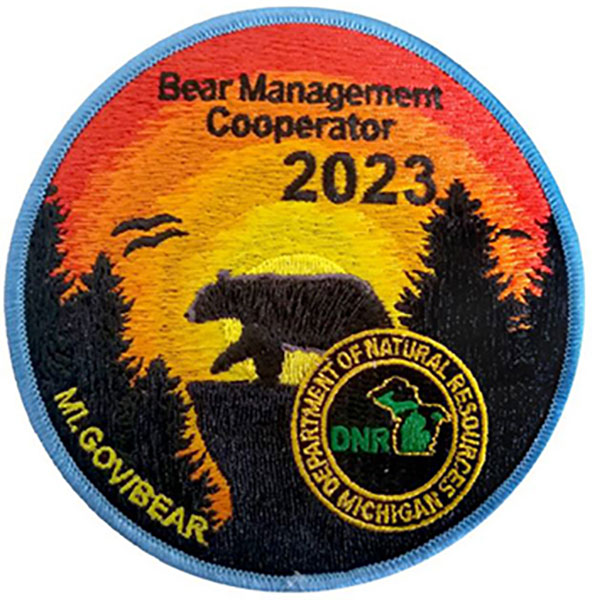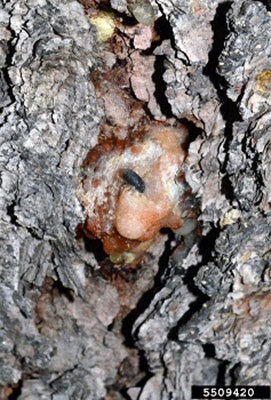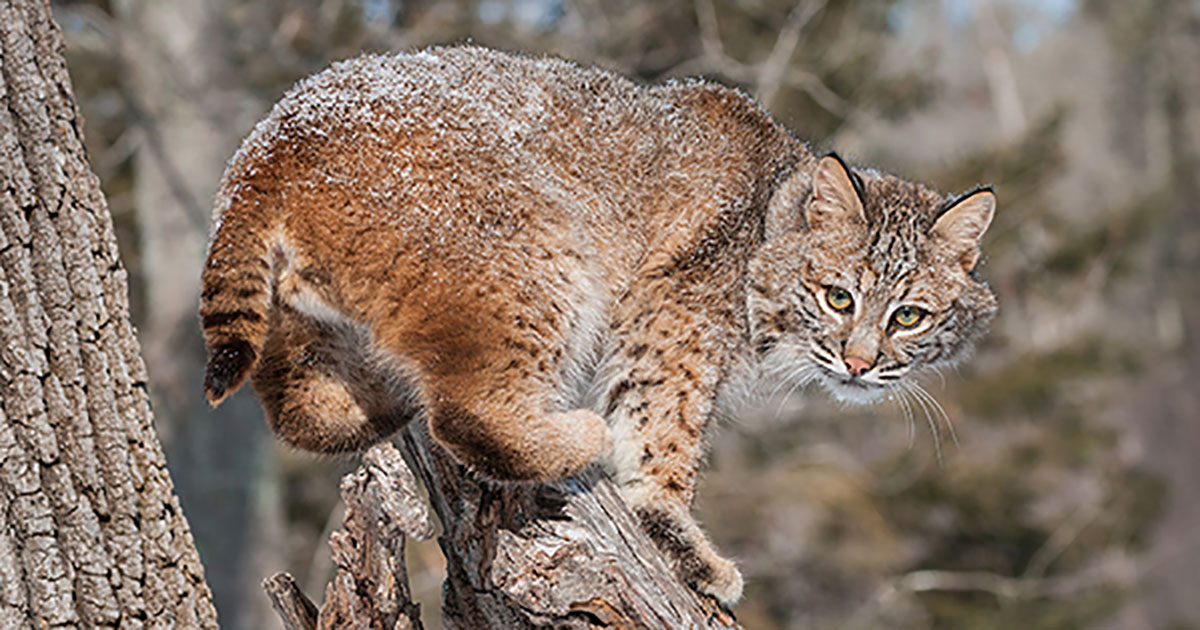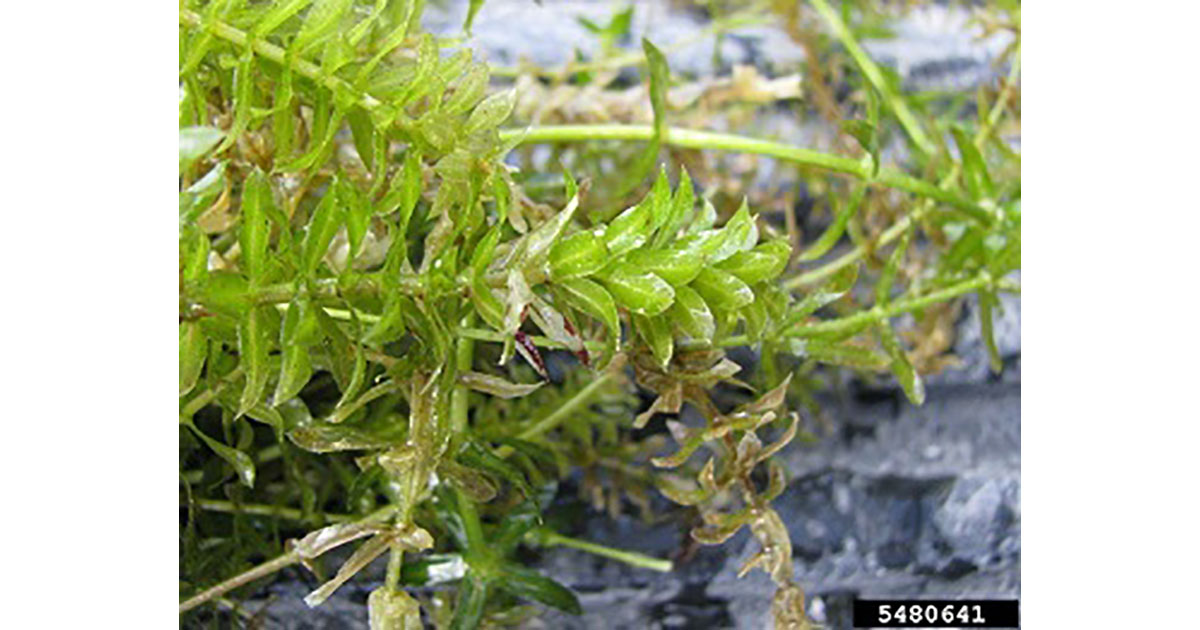- Details
MDNR Report
 2023 bear management cooperator patch
2023 bear management cooperator patch
The 2023 bear management cooperator patch is a great way to commemorate the recent bear season. Adult hunters, patch collectors and others can buy a patch for $7. Young hunters, 17 years old and younger, who have a valid bear hunting license can get a free patch.
The Michigan Bear Hunters Association, in partnership with the Michigan Department of Natural Resources, coordinates Michigan’s bear cooperator patch program. Proceeds from patch sales will be used for black bear education and outreach.
- Details
MDNR Report
Michigan’s invasive species watch list was updated last summer to include two new species and remove another. Mountain pine beetle, a deadly threat to pine trees, and water-primrose, a fast-spreading aquatic plant, have been added to the watch list due to threats they pose to native ecosystems and industry. European frog-bit, originally listed in 2011, has been moved off the list of species of immediate concern and is now considered established in the state.
Mountain pine beetle
Mountain pine beetle has been characterized as the most aggressive, persistent and destructive bark beetle in the western U.S. and Canada. Hot, dry summers and mild winters in these areas have led to the beetle’s unprecedented population growth and range expansion, moving it ever closer to Michigan.
 Mountain pine beetle
Mountain pine beetle
“White and red pines are primary species in our forest ecosystems, and jack pine serves as critical habitat for the Kirtand’s warbler,” said Susie Iott, invasive species program specialist with the Michigan Department of Agriculture and Rural Development. “If mountain pine beetle were to become widely established in Michigan, it would cause severe losses across multiple industries, including timber products, plant nurseries and tourism.”
- Details
MDNR Report
Several changes to statewide and local fishing regulations were approved. The updated regulations, outlined below, took effect Friday, Oct. 13, 2023.
Statewide: The phrase “attempting to take” has been removed in reference to fishing for Arctic grayling (shown above) in Michigan since grayling currently are being raised in preparation for a limited, future stocking program. This change will allow anglers to catch and immediately release Arctic grayling. It will not allow anglers to possess the species.
Statewide: A northern pike regulation wording change now states where northern pike 24 inches or greater are allowed on waters where up to five northern pike of any size may be taken, with only one 24 inches or greater allowed in the daily possession limit.
- Details
MDNR Report
 Michigan Bobcat
Michigan Bobcat
Planning to hunt or trap Michigan bobcats this winter and into 2024? You need to pick up your kill tags by Oct. 24, 2023. In addition to purchasing a fur harvester license, hunters and trappers who intend to harvest bobcat also need to get their two free bobcat kill tags.
Kill tags are available at license agents, DNR customer service centers, online at eLicense or through the Michigan DNR Hunt Fish app.
If you harvest a bobcat, you should immediately validate the tag and attach it to the hide from the upper jaw through the eye socket or through the lower jaw. The kill tag will be replaced by an official DNR seal at registration.
For bobcat registration information and harvest regulations, see the 2023 Furbearer Harvest Regulations Summary.
- Details
MDNR Report
 Invasive Hydrilla
Invasive Hydrilla
Hydrilla, considered one of the world's most invasive aquatic plants, has been detected for the first time in Michigan. The Department of Environment, Great Lakes and Energy confirmed two small populations of the plant in adjacent private ponds on residential properties in Berrien Springs in Southwest Michigan during the summer.
The small patches of hydrilla (Hydrilla verticillata) were discovered during routine monitoring following treatment for another invasive plant, parrot feather, which was found in the pond in 2020. Both species are prohibited in Michigan, meaning it is unlawful to sell, possess or import them into the state, and both are on Michigan’s invasive species watch list due to their potential environmental threat.
Hydrilla has several ways of reproducing, allowing it to spread rapidly, outcompete native plants and quickly form dense single-species infestations. Root tubers, turions (buds) and even small plant fragments can develop into new plants, making it very easy for hydrilla to disperse through water or attach to ornamental plants sold for water gardens.


